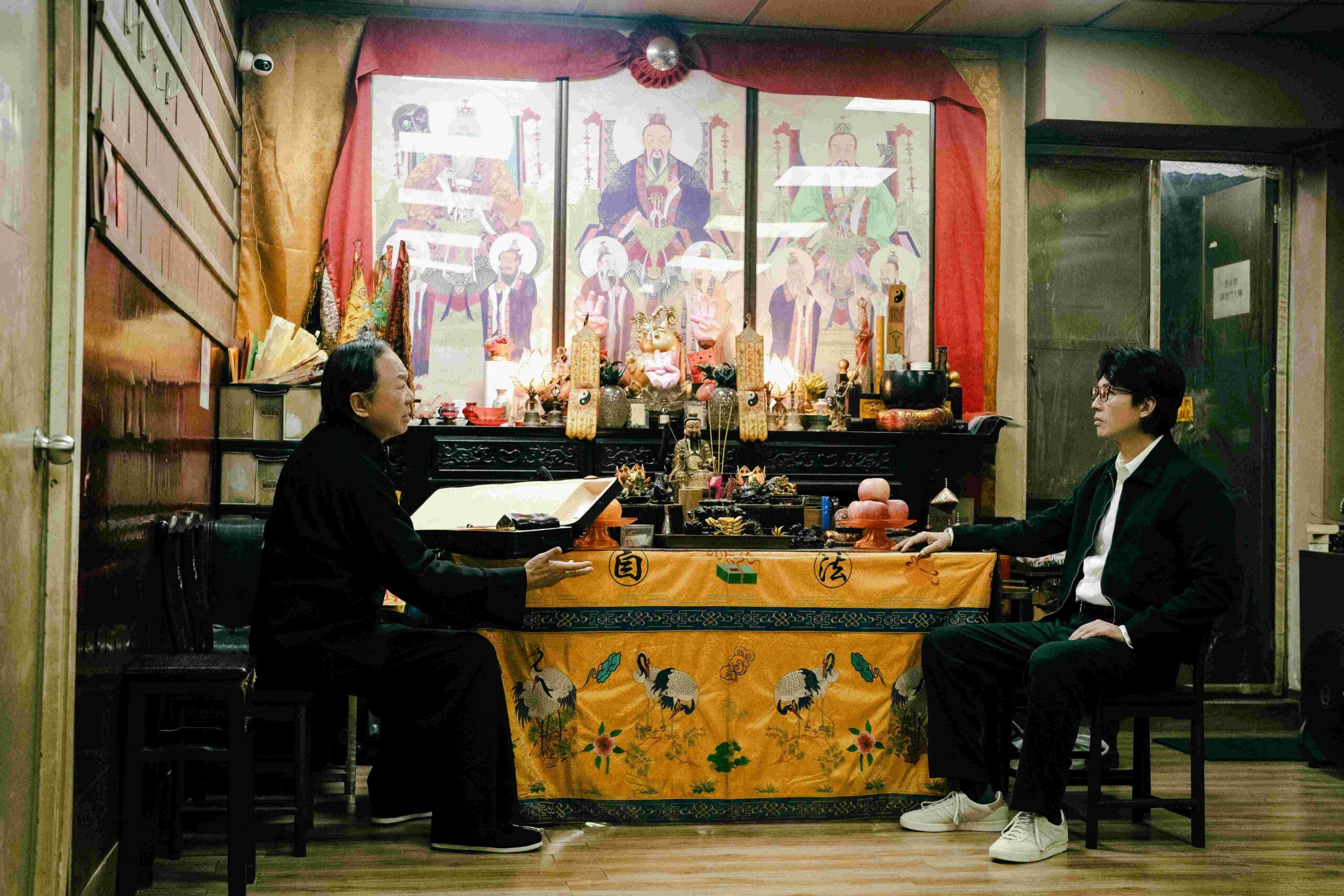The Last Dance
.
VERDICT: The highest-grossing local film of all time in Hong Kong, Anselm Chan’s ‘The Last Dance’ is an involving family drama set in Hong Kong’s unique funeral business, where modern parlors coexist with traditional Taoist rites.
Colorful traditional rites clash with modern times and aspirations in The Last Dance, a sparkling example of popular entertainment that has taken Asia by storm since it opened the Hong Kong Asian Film Festival last year. Since then it has won over 30 awards around the world for its director Anselm Chan, cast and technical crew. It has been selected as Hong Kong’s hopeful for the 2026 Best International Feature Oscar.
Perhaps most surprising is how it has grossed over $20 million worldwide, making this drama about a failed wedding planner in his 50’s who switches to running a funeral home the top-grossing HK film of all time. Obviously there is more to the storyline than that, and Anselm Chan, who co-wrote with Wai Kei Cheng, is a veteran screenwriter with massive experience getting the characters, tone and pacing just right. For a third directing effort (his previous films were Ready O/R Rot and Ready O/R Knot) the results are exceptional.
But how will it play to Western audiences and Academy voters? The Last Dance is a universal story of economic hardship, failure and finally success in business – the funeral business, as it happens, treated with great respect and a modicum of comedy. But its greatest charm is how it captures the local neighborhood atmosphere and threads its way through the stubborn religious beliefs held by a family of Taoist priests. The centerpiece is an exotic flame ceremony called “breaking hell’s gate”, in which the priest steals the departed soul from hell, and Chan puts a modern, rather mind-blowing twist on it. But it should be said that its down-to-earth, conflicted family is far from what many viewers associate with the peaks of HK cinema, namely the stylized visual beauty and erotic romanticism of classics like Wong Kar-wai’s In the Mood for Love or Yonfan’s No. 7 Cherry Lane. The Last Dance takes a more mainstream route that is easier to relate to, if more prosaic.
The story twirls around Dominic, who has lost his business in the Covid shut-down and is casting around for work. Playing the tall, black-clad bachelor with glasses and a toothy grin, actor Dayo Wong teeters on the edge of comedy when his girlfriend’s Dad hooks him up with a revered but cantankerous priest known as Master Man. Veteran actor Michael Hui makes him the pinnacle of grump, so it comes as a surprise to see Dominic holding his own and persevering when Man devastatingly underlines his beginner’s mistakes. In Dominic’s mind, the priest is his 50-50 partner in the funeral business, but it will take Man the whole film to see it this way.
Dominic is a frequent visitor to Man’s beautiful old-fashioned apartment where he lives with his daughter Yuet (Michelle Wai), his son Ben (Tommy Chu), and Ben’s wife and child. There is little peace in the house. In order to get their son into a fast-track international school, Ben is forced to convert to Catholicism. This causes a major uproar with Man, as well it might, considering that Ben’s current job is being assistant priest at funeral services. Chu gives the role a rock-solid realism, along with deep sadness at the decision his family makes to leave his home to find a better life.
But even more controversial is Yuet’s desire since childhood to officiate as a priest, despite growing up being told that “woman are filthy” because they menstruate. Suffice it to say that Taoist tradition receives a mighty challenge in the course of the film. As the paramedic Yuet, Wai portrays a wide range of modern female complaints, from over-identification with her patients to her refusal to have an emotional relationship with her sex partner. Among the secondary roles, Rosa Maria Velasco creates real emotion as the lesbian lover of a dead woman whose husband has cruelly banned from a last visitation – but Dominic sees things differently.
The film’s top-drawer technical work plays a big role, too, in creating a cozy old-world atmosphere into which modern life encroaches. The gentle, musical score by composer Wan Pin Chu quietly dominates many scenes.
Key to making Chan’s many glimpses into the inner workings of a funeral home palatable is the lighting and camera work, particularly in a could-have-been-gruesome scene in the embalming room between Dominic and a young boy who has died six months earlier and whose mother can’t bring herself to bury. Cinematographer Anthony Pun backlights the body with a gossamer white light that lends reverence to this terrible scene, leaving the viewer with new respect for Dominic’s big heart. In the end, he and Man agree that “what matters most are the feelings of the living.”
Director: Anselm Chan
Screenwriters: Anselm Chan, Wai Kei Cheng
Producers: Chan Mou Yin Anselm, Sing Yan Chan, Jason Siu
Cast: Michael Hui, Dayo Wong, Michelle Wai, Tommy Chu, Catherine Chau, Paul Chun Pui, Elaine Jin, Rosa Maria Velasco
Cinematography: Anthony Pun
Production design: Hon-Man Yiu
Costume design: Pik Kwan Lee
Editing: William Chang, Curran Pang
Music: Wan Pin Chu
Sound: Yiu Chun Hin
Production company: AMTD Digital
World sales: Emperor Motion Pictures
In Cantonese
126 minutes

